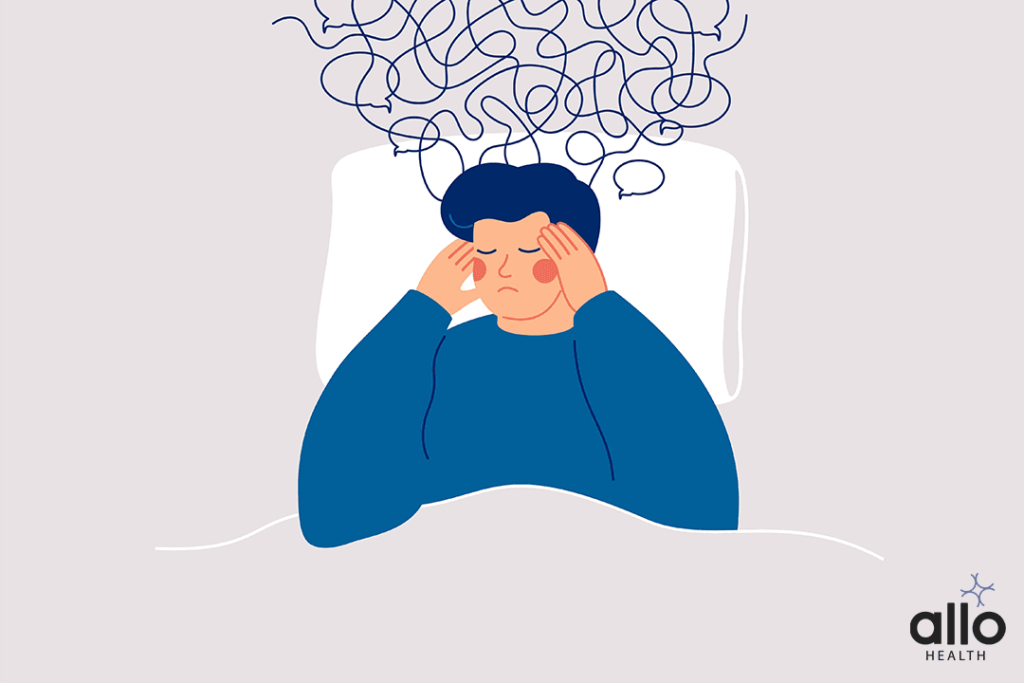Premature Ejaculation Symptoms

Allo Health is dedicated to personalized well-being, offering support and trusted information tailored to individual health goals. The platform emphasizes human-generated content, led by a distinguished medical team of experts, including physicians and sexual health specialists. Their commitment to credibility involves rigorous fact-checking, authoritative research, and continuous updates to ensure accurate, up-to-date information. Allo Health's unique approach goes beyond conventional platforms, providing expert-led insights and a continuous commitment to excellence, with user feedback playing a crucial role in shaping the platform's authoritative voice.

A Psychotherapist with Clinical specialization, working for over seven years now. Areas of specialization range from Anxiety-related disorders, Mood-related disorders, Personality disorders, Sexual dysfunctions & other mental health issues.
Why This Was Upated?
Our experts continually monitor the health and wellness space, and we update our articles when new information became available.
Updated on 17 June, 2024
- Article was updated as part of our commitment to diversity, equity, and inclusion.

"The following blog article provides general information and insights on various topics. However, it is important to note that the information presented is not intended as professional advice in any specific field or area. The content of this blog is for general educational and informational purposes only.
Book consultation
The content should not be interpreted as endorsement, recommendation, or guarantee of any product, service, or information mentioned. Readers are solely responsible for the decisions and actions they take based on the information provided in this blog. It is essential to exercise individual judgment, critical thinking, and personal responsibility when applying or implementing any information or suggestions discussed in the blog."
The correct definition of Premature Ejaculation is: if a man ejaculates before penetration or lasts less than 2 minutes after penetration (all or most of the time), and/or if it leads to frequent dissatisfaction for him or his partner, he may have PE.
However, there are various other symptoms of Premature Ejaculation that can occur – especially if left untreated.
Risk Factors of Premature Ejaculation
- Erectile Dysfunction
- Mental Health Conditions: such as Chronic Stress
Symptoms of Premature Ejaculation
The main symptom of PE is the inability to delay ejaculation leading to quick or rapid ejaculation. This can lead to frustration and sexual dissatisfaction to all partner(s).
With sexual disorders or concerns in which sexual function or sexual performance is affected, there is a lack of understanding on how coping with it can be challenging. While the individual experiencing the symptoms can experience psychological affects, the partner(s) involved too, can be affected. Research published in the National Library of Medicine revealed that there was a relationship and interaction between PE and female sexual dysfunction.
This is not to say that every partner that is experiencing sexual Dysfunction will lead to their partner(s) experiencing the same. However, the fact is that all those involved can be affected.
Sexual Dysfunctions
Erectile Dysfunction:?Premature ejaculation can lead to other sexual dysfunctions, if not treated – especially ED. Research from the National Library Of Medicine revealed that “the presence of PE, however defined, was associated with a significant increase in ED risk.” This reveals that the presence of PE in most cases can also result in the presence of Erectile Dysfunction. However, normal erectile function can resume when Premature Ejaculation symptoms are treated.
Performance Anxiety: Due to the psychological and physical stress placed upon “performing”, many individuals feel a mounted pressure to “last longer in bed.” The inability to delay ejaculation may lead to individuals feeling this same pressure of performing which can make PE symptoms worse such as involuntary ejaculation or ejaculation before time.
Low Sexual Desire: In most cases, PE symptoms are gone a while without being addressed, this could lead to individuals experiencing these symptoms to have a low desire to have sex. They could lose interest due to the lack of sexual satisfaction or the fear of not being able to please their partner(s).
Mental Health
- Depression
- Stress
- Anxiety
- Frustration
When To See A Doctor
If you are experiencing concerns with time to ejaculate, or feel as though you may not be experiencing normal ejaculation, we encourage you to speak to a professional as soon as possible.
Premature Ejaculation is a common sexual dysfunction, and contrary to popular belief, it is treatable. There are various treatment options available for premature ejaculation:
Topical Anaesthetics
These help in mild numbing of the head of the penis to allow for the delay of ejaculation
Oral Medications
- Antidepressants: Selective Serotonin Re-uptake Inhibitors or SSRIs
- Phosphodiesterase-5 inhibitors (PDE-5)
- Analgesics
Lifestyle Changes
- Kegel Exercises
- Pelvic Floor Muscles Exercises
Psychological Counselling
Premature ejaculation can be caused or lead to mental health concerns such as depression or anxiety. While you are being treated for the possible physical factors of premature ejaculation, therapy will help you gain understanding of the psychological factors and the behavioural techniques or behavioural methods that will help improve both your quality of life and sexual satisfaction but that of your sexual partner(s) as well.
Psychological therapy can involve:
- Couples therapy: to help build intimacy within your sexual relationship
- Individual sexual therapy: learning to build control over ejaculation
- Understanding of lifestyle exercises to help improve pelvic floor muscles or smooth muscle strength such as the squeeze method or pause squeeze technique, and the stop-start method.
- Help in building communication between partners: this could give couples a better understanding of intimacy and foreplay – hours before sex or minutes before sex. Your sex life is important.
There is a stigma associated with sexual health or sexual dysfunction, however, a conversation with a sexual health expert or health care provider can significantly help. While there is a fear of invasive treatments, or not gaining back control of ejaculation – we’re here to fix that.
The treatment approach is determined based on holistic evaluation – it could be a therapeutic approach via a mental health provider, behavioural therapy, oral medicative treatment such as treatment with SSRIs etc. In every way, however, your ejaculatory dysfunction can and should be treated. Effective treatment is possible and you can always discuss your progress or future treatment options or your previous treatments with you doctor.
Sexual health is as important as physical and mental health. In most cases, one consultation can go a long way. Personalised, discreet, and judgement-free treatment at your fingertips – book an online consultation with one of Allo?s leading experts.







































